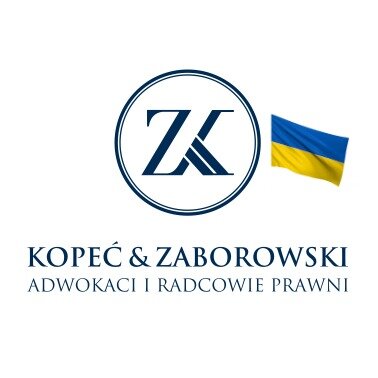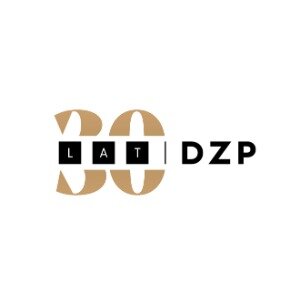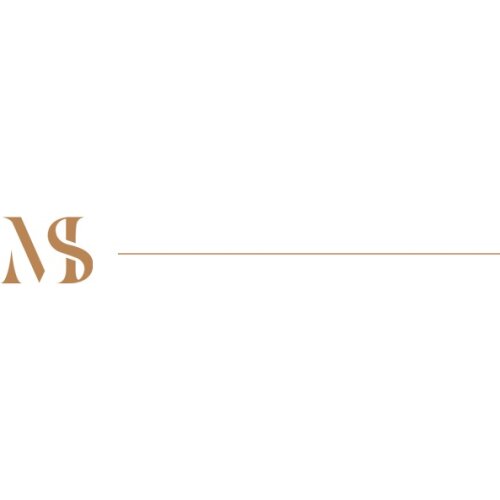Best Antitrust Litigation Lawyers in Warsaw
Share your needs with us, get contacted by law firms.
Free. Takes 2 min.
List of the best lawyers in Warsaw, Poland
About Antitrust Litigation Law in Warsaw, Poland
Antitrust litigation in Warsaw, Poland refers to legal proceedings that address violations of competition law. These laws are designed to ensure fair competition and to prevent practices that could harm consumers or other businesses. Antitrust litigation commonly covers issues such as price fixing, abuse of dominant market position, bid rigging, and unlawful mergers or acquisitions. In Warsaw, as the economic center of Poland, businesses and individuals are likely to encounter complex competition law issues, making antitrust litigation a significant aspect of commercial legal practice.
Why You May Need a Lawyer
There are several common situations where individuals or companies may need the assistance of an antitrust lawyer in Warsaw:
- Facing investigation or charges by the Polish competition authority (UOKiK) for suspected competition law violations
- Becoming a victim of unfair competition, such as price fixing or market allocation by competitors
- Involved in mergers or acquisitions that could raise competition concerns and require regulatory clearance
- Receiving cease and desist letters or being sued for potential antitrust breaches
- Pursuing damages for losses resulting from anticompetitive conduct by other market players
- Needing legal advice on compliance with local and EU competition regulations
Given the complexity of these cases and the significant fines or penalties that may be imposed, professional legal help is crucial.
Local Laws Overview
Warsaw, as the capital city of Poland, is directly influenced by both national and European Union competition regulations. The main source of antitrust law in Poland is the Act on Competition and Consumer Protection, enforced by the President of the Office of Competition and Consumer Protection (UOKiK).
Key aspects of local antitrust laws relevant to litigation include:
- Prohibition of agreements, decisions, or practices that restrict competition (such as cartels, price fixing, or market sharing)
- Prohibition of abusing a dominant market position, such as imposing unfair prices or limiting market access for competitors
- Obligations to notify and seek approval for certain mergers and acquisitions that may impact competition in the Polish market
- The ability for victims of anticompetitive practices to seek compensation in civil courts
- Potential for both administrative and criminal sanctions against individuals and companies found guilty of antitrust violations
Poland's antitrust regime also works in tandem with EU competition law, meaning many cases in Warsaw must also consider European regulations and precedents.
Frequently Asked Questions
What is considered anticompetitive behavior under Polish law?
Anticompetitive behavior includes actions like price fixing, market sharing, bid rigging, restricting supply, or abusing a dominant position in the market. These actions are prohibited because they distort fair competition and harm consumers or other businesses.
Who enforces antitrust laws in Warsaw, Poland?
The main authority enforcing antitrust laws is the Office of Competition and Consumer Protection (UOKiK), led by its President. This agency investigates, fines, and can bring cases against entities violating competition law.
Can individuals or businesses file their own lawsuits for competition law harms?
Yes, victims of anticompetitive conduct can file private lawsuits for damages against parties that violate competition laws in Poland. Courts can award compensation for financial losses caused by such practices.
What are the penalties for breaching antitrust laws in Poland?
Penalties can include fines up to 10 percent of the annual turnover of the offending company, orders to cease and desist unlawful practices, or even criminal sanctions in certain cases.
Are cartel agreements treated seriously in Poland?
Yes, cartel agreements such as price fixing or bid rigging are considered very serious violations. They often result in the largest penalties, and the UOKiK actively investigates and prosecutes such conduct.
How are mergers regulated from an antitrust perspective?
Certain mergers or acquisitions must be notified to the UOKiK for clearance if they meet market share or turnover thresholds. The authority reviews such transactions to ensure they do not restrict or distort competition.
What is the relationship between Polish and EU competition law?
Poland is bound to apply both national and EU competition laws. For conduct affecting trade between EU member states, EU rules take priority and may be enforced alongside Polish law.
How long do antitrust investigations typically take?
The duration varies depending on complexity. Some investigations can take several months, while particularly complex cases may last over a year.
Can leniency be granted to companies who cooperate with antitrust authorities?
Yes, Poland operates a leniency program. Companies that self-report and cooperate with investigations may benefit from reduced penalties or immunity from fines in certain situations.
What should I do if I receive notice of an antitrust investigation or lawsuit?
Immediate legal consultation is recommended. Responding incorrectly or missing deadlines can harm your case. An experienced antitrust lawyer can provide guidance and help protect your interests during an investigation or litigation.
Additional Resources
If you need further information or support with an antitrust issue in Warsaw, consider the following resources:
- Office of Competition and Consumer Protection (UOKiK) - The national authority for competition law enforcement
- Polish Bar Council (Naczelna Rada Adwokacka) - For finding licensed lawyers in Warsaw
- European Commission - Directorate-General for Competition for cross border or EU-related matters
- Warsaw Chamber of Commerce for business support and referrals
- Nonprofit organizations focusing on consumer rights and business ethics
Next Steps
If you believe you need legal assistance in an antitrust litigation matter in Warsaw, here are some recommended next steps:
- Document all relevant facts, communications, and decisions related to your case.
- Consult with a qualified antitrust lawyer who practices in Warsaw and is familiar with both local and EU competition laws.
- Request an initial consultation to discuss your circumstances and possible strategies.
- Determine the specific type of assistance you require, such as legal defense, compliance advice, or pursuing damages.
- Stay informed by keeping in touch with relevant authorities and regularly checking for updates on your case.
Engaging with a specialist in antitrust law can make a significant difference in navigating complex regulations and achieving a favorable outcome.
Lawzana helps you find the best lawyers and law firms in Warsaw through a curated and pre-screened list of qualified legal professionals. Our platform offers rankings and detailed profiles of attorneys and law firms, allowing you to compare based on practice areas, including Antitrust Litigation, experience, and client feedback.
Each profile includes a description of the firm's areas of practice, client reviews, team members and partners, year of establishment, spoken languages, office locations, contact information, social media presence, and any published articles or resources. Most firms on our platform speak English and are experienced in both local and international legal matters.
Get a quote from top-rated law firms in Warsaw, Poland — quickly, securely, and without unnecessary hassle.
Disclaimer:
The information provided on this page is for general informational purposes only and does not constitute legal advice. While we strive to ensure the accuracy and relevance of the content, legal information may change over time, and interpretations of the law can vary. You should always consult with a qualified legal professional for advice specific to your situation.
We disclaim all liability for actions taken or not taken based on the content of this page. If you believe any information is incorrect or outdated, please contact us, and we will review and update it where appropriate.

















